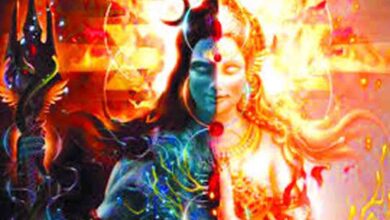Shredding what’s behind the ripped jeans non-issue

 THE OTHER SIDE
THE OTHER SIDE
The recently sworn in chief minister Tirath Singh Rawat appears to have received disproportionately more publicity in recent days than he did even on the day his name was finalised for the post of Uttarakhand’s tenth CM. The example he had cited of a woman wearing ripped jeans is now so talked about that there doesn’t seem any sense in repeating it. However, there are other aspects that are either being ignored or not known.
Ripped jeans or the rips originally signified rebellion. They originated when punks in the early times of the punk subculture started to tear apart consumer goods to express their anger towards society with denim ending up being a major part of this political statement. Now, the majority of those who purchase ripped jeans may not know of the punk subculture which originated in the mid-1970s. The posers may also be unaware of punk rock while trying to appear like a disappointing version of punk rockers. Apart from the rips made trendy by punks, the other version is the ones which naturally tear following long use. Both the versions are drastically different in character and the guiding mentality than the pseudo readymade rips purchased by those wanting to ape a trend without knowing much about its origin. Irrespective of this, the CM’s statement elicited what appeared to be outrage at the national level with ‘celebrities’ and some noted personalities expressing anger at the way in which women were being viewed. The political parties as usual did their best to exploit the situation. However, similar reactions were missing and the progressive voices seemed restrained if not silent earlier in this year when two separate developments took place.
A vital arm of the establishment had held earlier this year that a girl from a particular religion who is aged less than 18 years and has attained puberty is at liberty to marry anyone as per the personal law for followers of that religion. Evidently, various aspects were considered by the learned public servant who arrived at this conclusion.
More recently, a Khap Panchayat in Muzaffarnagar district of Uttar Pradesh prohibited women from wearing jeans and men from wearing shorts. Those who took this decision stated that the dresses banned were part of western culture, adding that people should wear traditional Indian clothes. Those who violated the ban would be punished and boycotted, the Khap Panchayat had declared.
Compare these two examples with the statement made by the CM. One is not interested in defending the CM or any politician- they are capable enough of doing that or facing the political consequences. However, what Rawat said was his opinion- which many say was twisted out of context to stir up a controversy. He has also apologised for the remark if it hurt anybody’s sentiments. Whether one agrees with his opinion or not, it was just that- an opinion and not an order. In the other two examples- both were orders which actually direct certain actions which would otherwise have elicited greater criticism and questions than the comments of the CM. One thinks that the CM should have gone beyond stereotypes and also pointed out at the majority of males who wear western apparel instead of traditional clothes. However, that doesn’t really matter so much.
Mind you, clothes are more than a covering or fashion statement but let’s leave those aspects for another time. What is important to realise is that there are much more significantly important issues to address and topics to debate than the statement made by Rawat. The Covid pandemic, health services, the state of the environment, the economy, livelihoods of the people and the continued trend of dishonesty dominating mainstream politics are just some of the incomparably more important issues which need the attention of the public. Amidst all this, it is only logical to comprehend the real meaning of diversity. It doesn’t mean only differences in language, clothes, customs and other aspects but also includes differences in opinion and cultural beliefs. Obviously, there can be differences in opinions and some beliefs though the basics must remain the same. You may support any political party but in the end you will want the nation and the people to prosper. It is just that many of those who accuse others of facism blatantly express their opposition to different opinions which is self-contradictory to say the least. Soon there will be some other petty issue or statement which will be built up and hotly debated. The focus of the public will be diverted. One only hopes that the people learn and work towards meeting the real priorities which affect us.
Saturday, 20 March 2021 | Paritosh Kimothi | Dehradun






